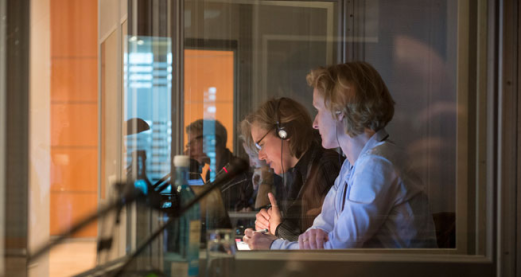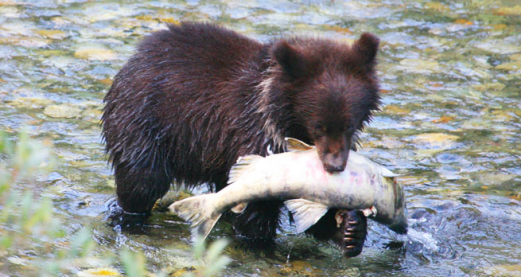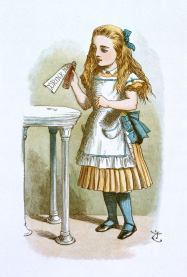 The lakes of Swallows And Amazons are calmer than the activity behind the latest production
The lakes of Swallows And Amazons are calmer than the activity behind the latest production
A 2016 BBC adaptation of the ‘Swallows and Amazons’ book series, sparked controversy after it was revealed that one of the characters was being renamed ‘Tatty’ instead of ‘Titty’. It’s not the first time that an adaptation of the book changed the name - The BBC’s 1963 version of Swallows and Amazons referred to the character as Kitty. So why should we care now?
The story, written by Arthur Ransome and first published in 1930, relates the outdoor adventures of two families of children in the Lake District in 1929. One of the four Walker children featured in the novel, Titty Walker, is based on the real life Mavis Altounyan. As the Telegraph recently reported, Barbara Altounyan, Mavis’s niece, is furious that the name is being changed for, she argues, reasons of political correctness. Saying her aunt would be “turning in her grave”, she condemned the move as insulting and running the risk of robbing a new generation of the charms and innocence of Ransome's classic novel.
For the same reasons that foreign books are regularly re-translated (I’ve lost count of the number of French versions of Lewis Carroll’s Alice in Wonderland), new adaptations and new versions of English-language books are also necessary – most of us will agree, I’m sure, that David Wright's modern verse translation of The Canterbury Tales is infinitely more reader-friendly than Chaucer’s 14th Century original. Language evolves, words take on new meanings and connotations, and different time frames, locations, societal norms and historical contexts mean that literature is received and interpreted in new ways. For example, the controversial title of Agatha Christie’s famous 1939 novel Ten Little Niggers was changed to And Then There Were None for the first US edition to make it more palatable to American readers. In the same vein, contemporary audiences would, understandably, infer a different meaning to what Enid Blyton originally intended when reading about the fictional character Noddy sharing a bed with his friend Big Ears, enjoying “gay times in the woods” or “coming over all queer”. In fact, Sophie Neville, who played Titty Walker in the 1974 film adaptation of ‘Swallows and Amazons’ and is the current president of the Arthur Ransome Society, pointed out that the controversial name-change was, in part, imputed to audience expectations. She highlights that the new movie has to attract viewers worldwide and that the reaction of international audiences is key to financial viability: “We might have to pay the price by changing Titty’s name.”
There are, however, good reasons for modern day audiences to be exposed to unexpected or old-fashioned language, and for institutions like the BBC to consider keeping Titty for future generations of children.
For one, Barbara Altounyan argued that changing her aunt’s name was tantamount to altering her identity. Indeed, the story’s heroine Mavis decided to change her name after watching the English Fairy Tale ‘Titty Mouse and Tatty Mouse’. She enjoyed the story so much that she actually decided to go by the name Titty rather than the name she was christened with. That seems a pretty big decision for a small girl.
One might argue that Tatty being the other mouse’s name in the story, the swap is relatively innocuous. However, the fact that Mavis opted for the name of the mouse that is scalded to death in the first few lines of the tale, and around whom the entire story revolves, does tell us something about this little girl’s character and personality - something which may shed light on her subsequent behaviours, and other aspects of the story. It is a shame that audiences will miss out on this relevant, and amusing, piece of information. In a study of American English editions of British English novels, Linda Pilliere (2010) finds that the removal of various aspects linked to characters’ individual voices, and deemed to be too difficult for readers, inevitably produce a much blander reading experience.
Admittedly, unlike with a book where a well-placed footnote or preface might provide additional context, a film has to resort to other methods in order to convey the depth of characters. This is not beyond the realm, however, for an updated adaptation which already stretches the plot to include a Russian spy story…
There is a second good reason to keep Titty’s name in future adaptations of the story. Filmmakers would apparently like “to avoid distracting modern-day children with the connotations of the original”, and to change the name presumably for reasons of taste and decency. However, for a film keen to provide some educational principles (e.g. it was debated as to whether the children would be shown on-screen sailing without their life jackets), one might argue that keeping the character’s original name would invite inquiry from children viewers, broaden their perspectives, and open their minds to the meaning of language while at the same time conveying the innocence of a past era. Surely, these are also worthwhile educational goals.
Judy Blume (1938) once said that children should be able to read whatever they want and then talk about it with adults. If parents and children can talk together, she argued, we will not have as much censorship because we will not have as much fear. Yes, children viewers may initially be ‘distracted’ by the name Titty, but this could pave the way for a conversation leading to an enriching learning experience. They may come away from this conversation with an increased understanding and appreciation for the contexts in which their own language is spoken. Removing that opportunity means that we are tacitly encouraging the next generation to judge the past by the standards of the present. By making the ‘connotations of the original’ more palatable to contemporary audiences, we are preventing them from experiencing an earlier time and place, from understanding that sensibilities evolve, and from developing a respect for different world views. After all, recent research in the field of translation suggests that the earlier a child is exposed to diversity and difference, the more open-minded and tolerant he becomes.
So, BBC, take note: much can depend on the choice of a name. Perhaps in the 1960s we did not know any better, but this 2016 remake has no excuses. After all, we wouldn't want this adaptation to be, in Ransome's own words, another ‘ghastly mess’.




Rate and Review
Rate this article
Review this article
Log into OpenLearn to leave reviews and join in the conversation.
Article reviews